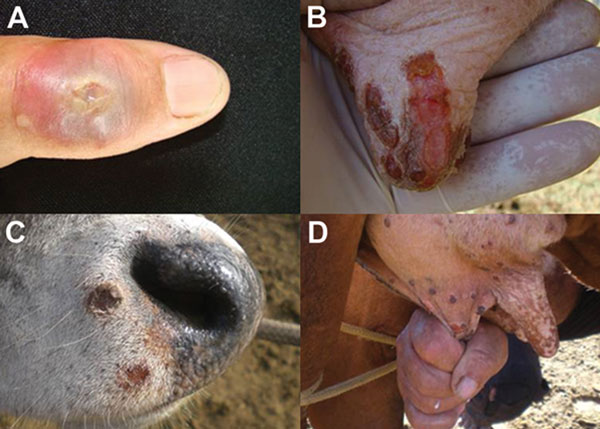Volume 19, Number 12—December 2013
Dispatch
Reemergence of Vaccinia Virus during Zoonotic Outbreak, Pará State, Brazil
Figure 2

Figure 2. . . . Exanthematic lesions caused by vaccinia virus (VACV) infection during this outbreak. A) Vesicular lesion on milker’s finger that advanced to an ulcerative stage. B and D) Typical lesions on teats and udder of a dairy cow infected by VACV at different stages, ranging from ulceration to scabs. C) Lesions on a calf’s muzzle probably caused by VACV infection during suckling.
Page created: November 19, 2013
Page updated: November 19, 2013
Page reviewed: November 19, 2013
The conclusions, findings, and opinions expressed by authors contributing to this journal do not necessarily reflect the official position of the U.S. Department of Health and Human Services, the Public Health Service, the Centers for Disease Control and Prevention, or the authors' affiliated institutions. Use of trade names is for identification only and does not imply endorsement by any of the groups named above.